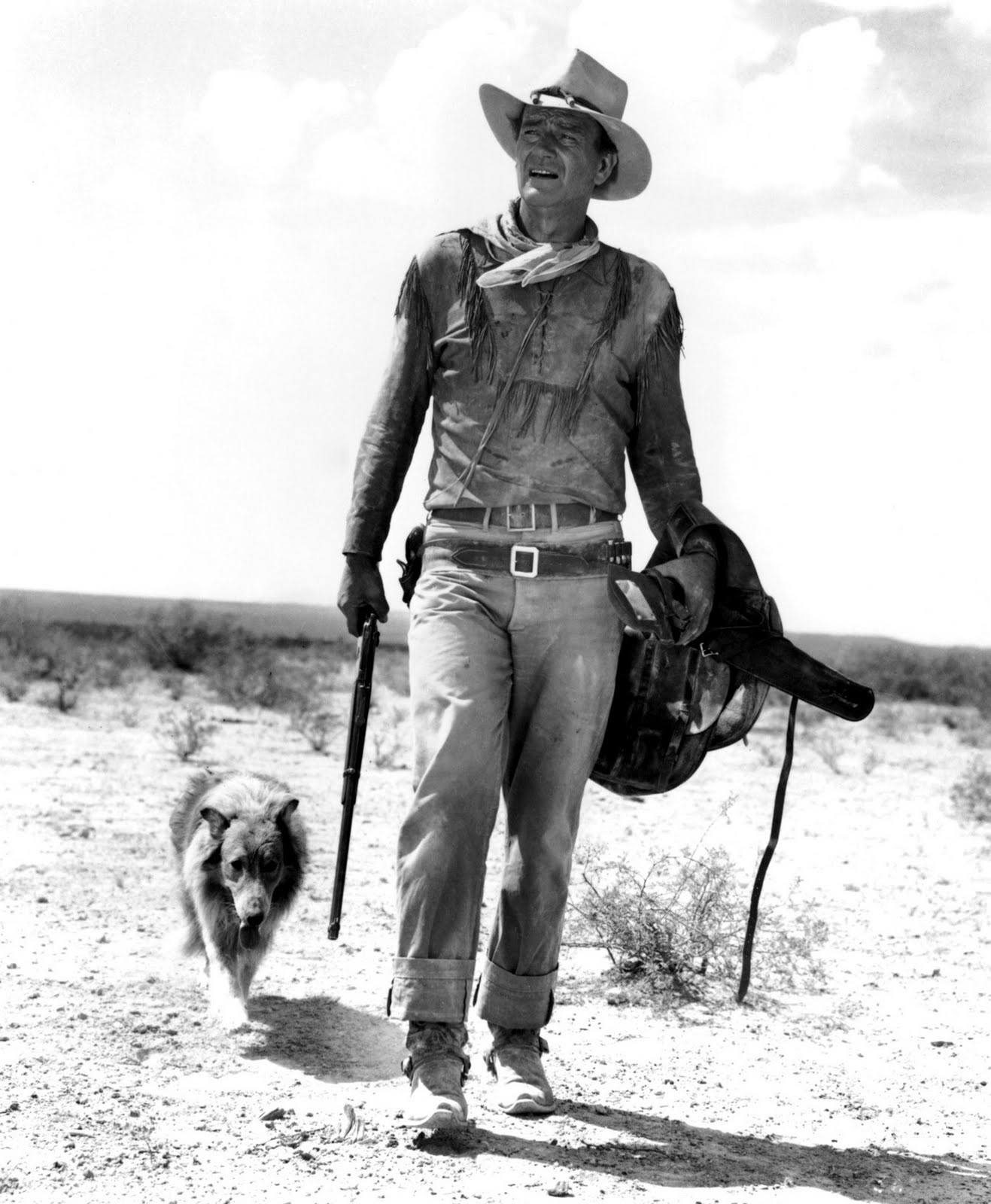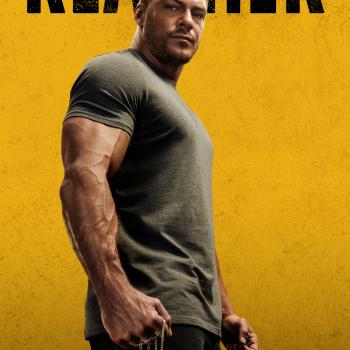Review of Hondo, Directed by Louis L’Amour
By COYLE NEAL
As I’ve mentioned in an earlier post, Americans are always in search of their own body of myths and legends—a literary past we can look to and claim as our own. The most recognizable and uniquely American body of literature that has grown up as a result of this search is the Western. This is particularly of interest to Christians, as perhaps no genre more easily reflects the Gospel than this one. With the trope of the townspeople being oppressed by the villain until the hero rides into town and sets them free—often at great personal cost to himself—the opportunities to picture (or parody) the Gospel are many. Few Westerns fit this mold better than Louis L’Amour’s Hondo.
The plot is surprisingly complex: Angie and her son Johnny have been abandoned by her husband Ed, only to be taken under the wing of the proud Apache chief Vittoro. Vittoro, who is about to start a war with the cavalry, offers to spare them, on the condition that Johnny be raised in the ways of the Apache, which means that unless his own father returns Angie will have to marry an Indian so that Johnny will receive a proper education. All this while the Indians are preparing to rise up against the government over a broken treaty. (See? I told you it was complicated.) Into this mess of personal and political conflict rides Hondo Lane with his dog Sam. Gruff, strong, and well-adapted to a harsh land, Hondo embodies the Western ideal:
No man knows the hour of his ending, nor can he choose the place of the manner of his going. To each it is given to die proudly, to die well, and this is, indeed, the final measure of the man. (46)
Death and the necessity of facing it well are the constant themes running through this book. The war between the Apache and the government, survival in a harsh land, raising a child on the frontier … all take place in the ever-present shadow of death. Every action may be the last for Hondo, Angie, Johnny, or Vittoro. And in this theme of living in the shadow of death, we find both new life and the great American myth that we’ve been searching for. L’Amour states in his introduction to this small-scale Western epic:
I sing of arms and men, not of presidents, kings, generals, or passing explorers, but of those who survived their personal, lonely Alamos, men who drove the cattle, plowed the furrows, built their shelters against the wind, the men who built a nation. […]
I do not need to go to Thermopylae or the Plains of Marathon for heroism. I find it here on the frontier. I found it at Adobe Walls, at Beecher’s Island, and in the aged Indian who charged the cavalry alone, with a worn-out knife […] Did Demosthenes or Cicero ever speak with greater eloquence than Chief Joseph? (vi)
The story—the myth—Americans are looking for must respond to the ever-present specter of death. In Hondo, the response is to live virtuously, fight hard, and raise the next generation to be a combination of all of the virtues of the past. Specifically, it is Hondo Lane who must do all of these things, and do them vicariously for Angie and Johnny so that all three of them may achieve new life by struggling well through the Indian Wars and, as a result, attain the glorious hope of the future civilization being built in the west. Hondo’s Christlike hard work, virtue, and sacrifice opens up a chance for Angie and Johnny to escape from a world of violence and death. And I really can’t say much more than that without giving away too many plot points. So if you want to know the details (including Hondo’s terrible secret), you’ll have to read the book. Which you should do, because it’s a good one.
Disclaimer 1: This book is actually a novelization of the John Wayne movie, which in turn was based on one of L’Amour’s short stories called “The Gift of Cochise.” So in a sense, the novel is the third draft of the narrative.
Disclaimer 2: The wife will insist that I tell you that the dog does, indeed, die. You have been warned.
Coyle Neal lives in Washington, DC, where he hopes soon to be finished being a graduate student.












